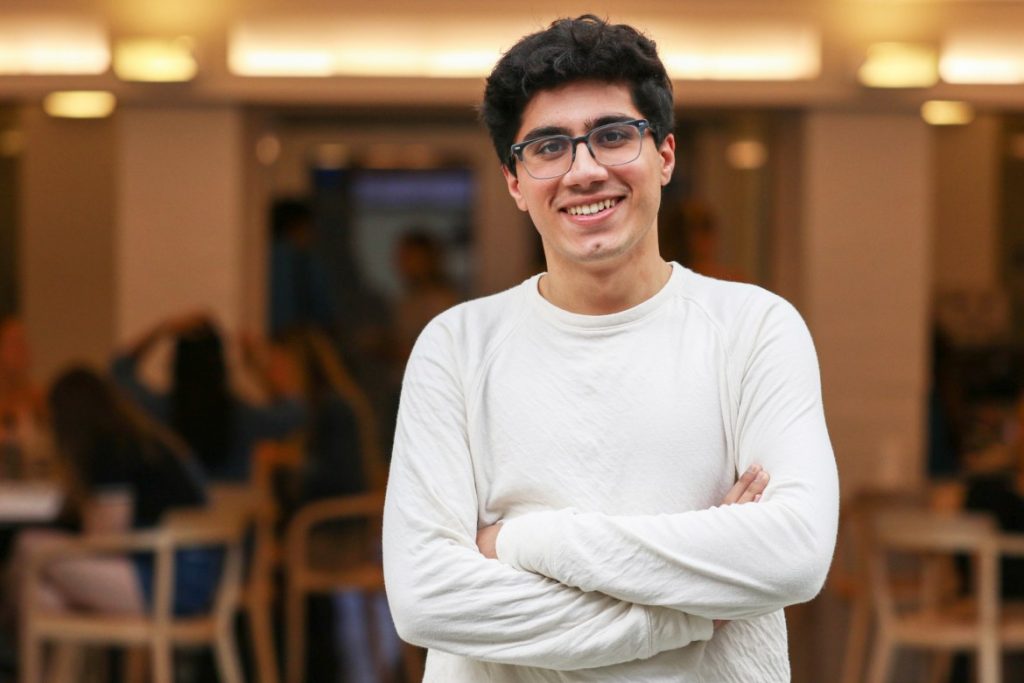Amid the customary difficulties that come with first semester of freshman year at Cornell, Abu Qader ’21 has an added responsibility: running his own company out of North Campus.
Qader is the cofounder and chief technology officer of the software company Glialab, whose models aid in detection of cancerous tumors.
Glialab began two years ago when in 10th grade, Qader won his Chicago high school’s computer science fair. The software that he developed for the fair then went on to become the basis of his company.
When he began working on the project, Qader’s intentions did not lie far beyond just winning the science fair. However, now Qader’s software can be used to aid a radiologist in the earlier detection of breast cancer tumors.
Qader said he has a vision for the company as something that has the potential to do “a world of good.”
Just three weeks into his first semester of college, Qader has adjusted to the college lifestyle but acknowledges that there are certain challenges to running his company here.
However, in balancing between the company and college, Qader maintains that he is here at Cornell to go to school first.
“I’m here to learn and grow as an individual, but I also want to devote time to the company because I think it’s crucial that I do that, it has become a part of who I am,” he said.
Qader said he used to enjoy the luxury of a high schooler’s schedule in which he could “go through a six hour binge of doing work for the company, or writing an algorithm,” he said.
Now with managing a full course-load and the other demands of college life, Qader said he “[has] to be a bit more cautious because that means I probably don’t get that three-hour problem set done.”
Regarding his goals for the future of his company, Qader said he does not intend for his software to replace radiologists but to work in tandem with them.
“We’ve noticed in multiple research papers — an AI [Artificial Intelligence] system by itself versus a human radiologist by themselves versus an AI system plus a human radiologist — of the three, the AI system plus the human radiologist will always make the better decisions,” Qader said. “They’re almost never wrong.”
Among his main concerns include “staying in the loop” with his company, still located in Chicago, but technology has made geographical separation bearable.
“When the majority of the team is located in Chicago and someone’s here in Ithaca, I feel like there is a disconnect, but modern technology makes it a bit easier to cope with that,” he said.
Marketing a product in the healthcare arena is very different from goods and service industries. Glialab is currently seeking partnerships with universities and hospitals to conduct further testing aimed at making the software as accurate as possible.
“When you’re in healthcare a 1 percent decrease in accuracy means that a couple thousand people are going to be affected,” he said.
Qader’s personal end goal for Glialab is having an impact in countries without the healthcare funding or educational infrastructure necessary to produce great hospitals and radiologists. Abu believes that healthcare is a right and that refusing treatment based on status is placing a dollar value on human life.
“The end goal for me personally — which I think we’re heading to very fast, which I am pretty excited about — is taking what we’re building and applying it in a manner where anyone from anywhere regardless of race or gender can come and use our service without having to worry about financial repercussions,” Qader said.
This article is shared by www.itechscripts.com | A leading resource of inspired clone scripts. It offers hundreds of popular scripts that are used by thousands of small and medium enterprises.
